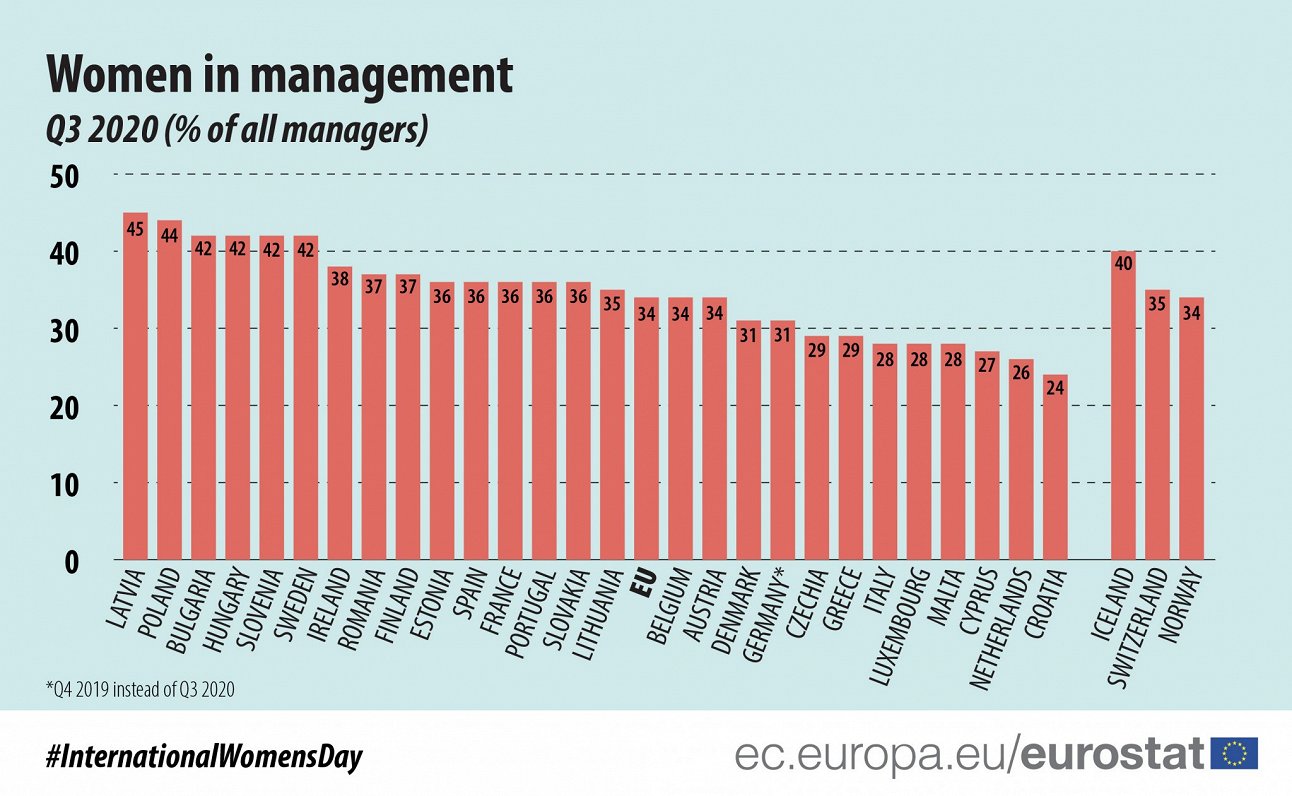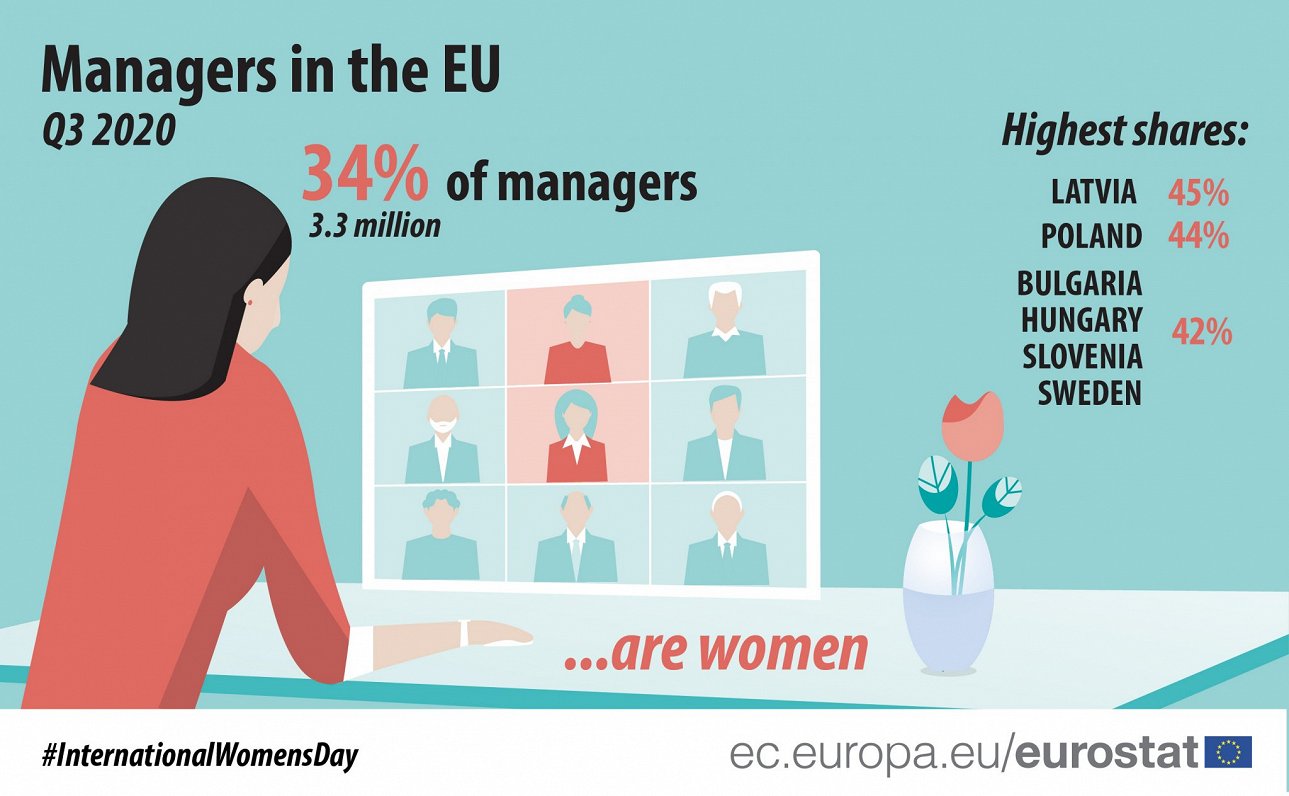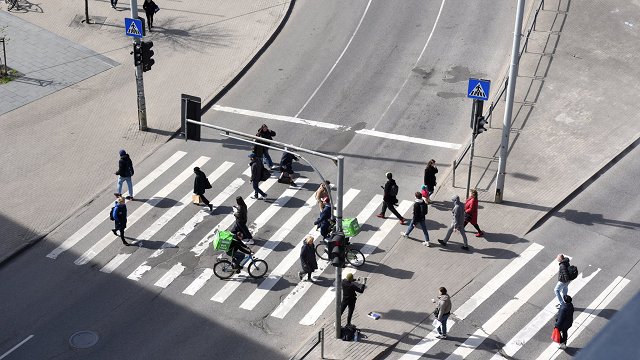However, the means and manner of marking the occasion are themselves matter of considerable debate with some people seeing the tradition as a throwback to the Soviet era, others attempting to put a more contemporary spin on it and no small number of women saying they do not require bunches of flowers to be presented to them, particularly by strangers.
In a discussion on LTV's 'Morning Panorama' news show, businesswoman Dagnija Lejiņa, founder of the Novatore consulting firm, said that the roots of International Women's Day a century ago in New York and then among the Suffragettes were worth remembering instead of getting wrapped up in the "pomposity" of the Soviet emphasis on presenting bunches of tulips.
"In reality now the United Nations invites people to celebrate March 8 to mark women's achievements, to discuss women's roles in society and evaluate women's participation in social and economic processes," said Lejiņa, adding that women's role in society should be considered and celebrated not only on March 8 but on all days of the year.
Daiga Auziņa-Melalksne, who chairs the board at Nasdaq Riga, said that March 8 is indeed a day for celebration but that businesses had plenty of room for improvement with only 7 to 8% of board members at Latvia's top 101 companies being women.
"I think this illustrates very well this dual situation in which we think that maybe everything is fine but the statistics unfortunately suggest something else," said Auziņa-Melalksne, adding that research suggested the inclusion of more women on company boards tends to improve decision-making, reduce risk exposure and improve financial results.
Latvia's relatively good performance in some metrics comparing male and female roles has also attracted comment. According to Eurostat data, among EU Member States, the largest share of women at managerial positions in Q3 2020 was recorded in Latvia (45%) and Poland (44%), followed by Bulgaria, Hungary, Slovenia and Sweden (all 42%).
At the opposite end of the scale, women account for only around a quarter of managers in Croatia (24%), the Netherlands (26%) and Cyprus (27%). The EU average is 34%.
However, even the Eurostat release giving the details on the imbalance in management roles couldn't resist some gender-generalization, saying "managers face a challenging task of planning, directing, coordinating or performing other activities critical for good functioning of their teams, companies or organizations. While both women and men bring different qualities to crisis management, women remain outnumbered at the management level." It did not specify exactly which different qualities the different sexes offer.

??? The largest share of #women in managerial roles:
— EU_Eurostat (@EU_Eurostat) March 5, 2021
?? Latvia (45%)
?? Poland (44%)
?? Bulgaria, ?? Hungary, ?? Slovenia, ?? Sweden (all 42%)
The lowest share:
?? Croatia (24%)
?? Netherlands (26%)
?? Cyprus (27%)
?? https://t.co/FI5AxePXdf#InternationalWomensDay #IWD2021 pic.twitter.com/zN9AJylQXG
Latvia also leads the way in Europe (along with Lithuania) when it comes to the number of farms managed by women.
Share of farms managed by a woman ?????????
— EU Agriculture? (@EUAgri) March 8, 2021
?? 45%
?? 45%
?? 34%
?? 33%
?? 32%
?? 31%
?? 30%
?? 29%
?? 27%
?? 27%
?? 28%
?? 26%
?? 25%
?? 23%
?? 23%
?? 21%
?? 20%
?? 19%
?? 17%
?? 15%
?? 14%
?? 12%
?? 12%
?? 11%
?? 10%
?? 8%
?? 6%
?? 5%@EU_Eurostat #InternationalWomensDay pic.twitter.com/KJkG9J0qCh
Perhaps the most eye-catching congratulations were provided by the State Fire and Rescue Service, which posted a short clip of a masked man emerging from a smoking hole in the ground bearing a bunch of daffodils and offering congratulations of the day. The number to call for the emergency services is 110.
??? pic.twitter.com/Khy1S9i4ZM
— VUGD (@ugunsdzeseji) March 8, 2021





























